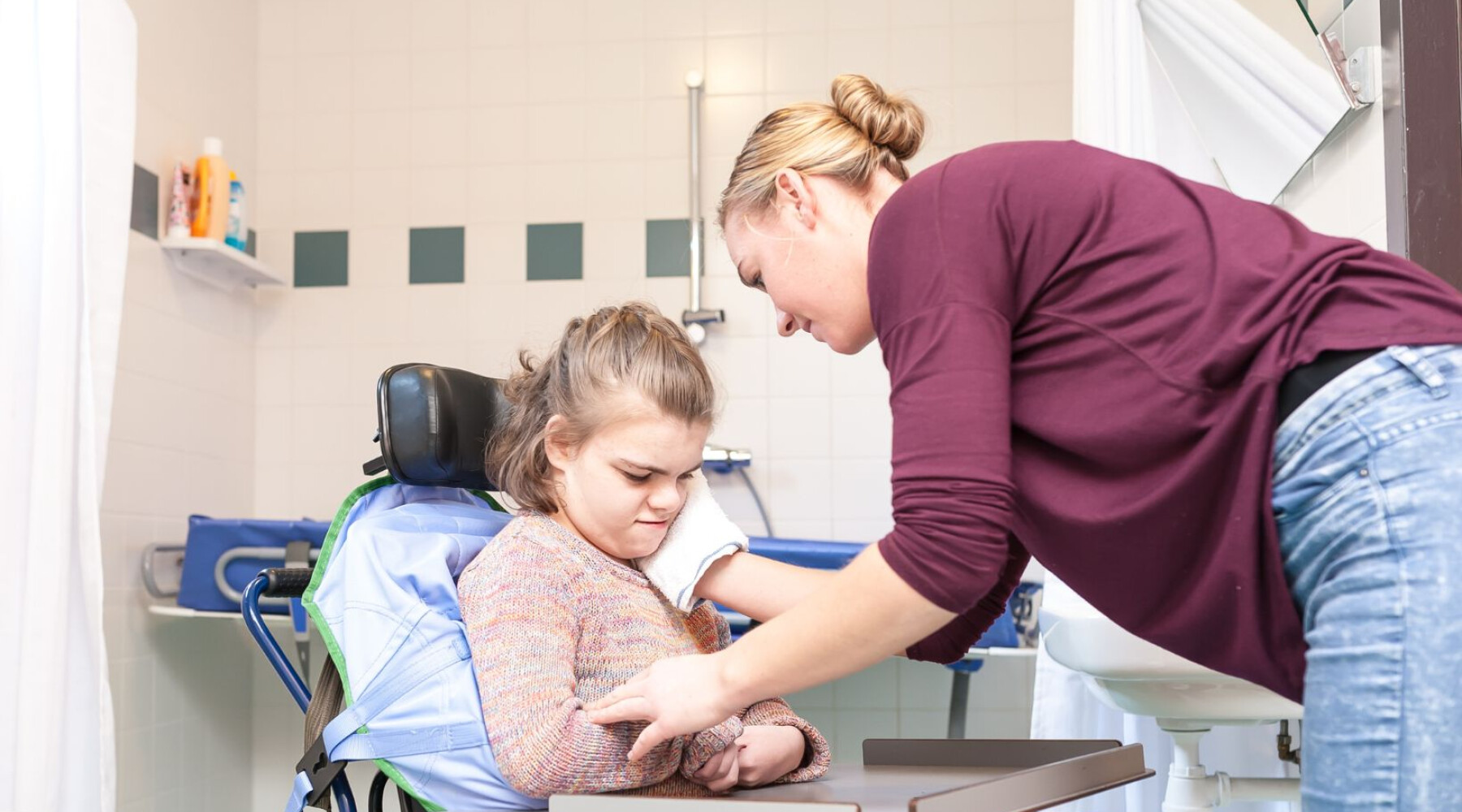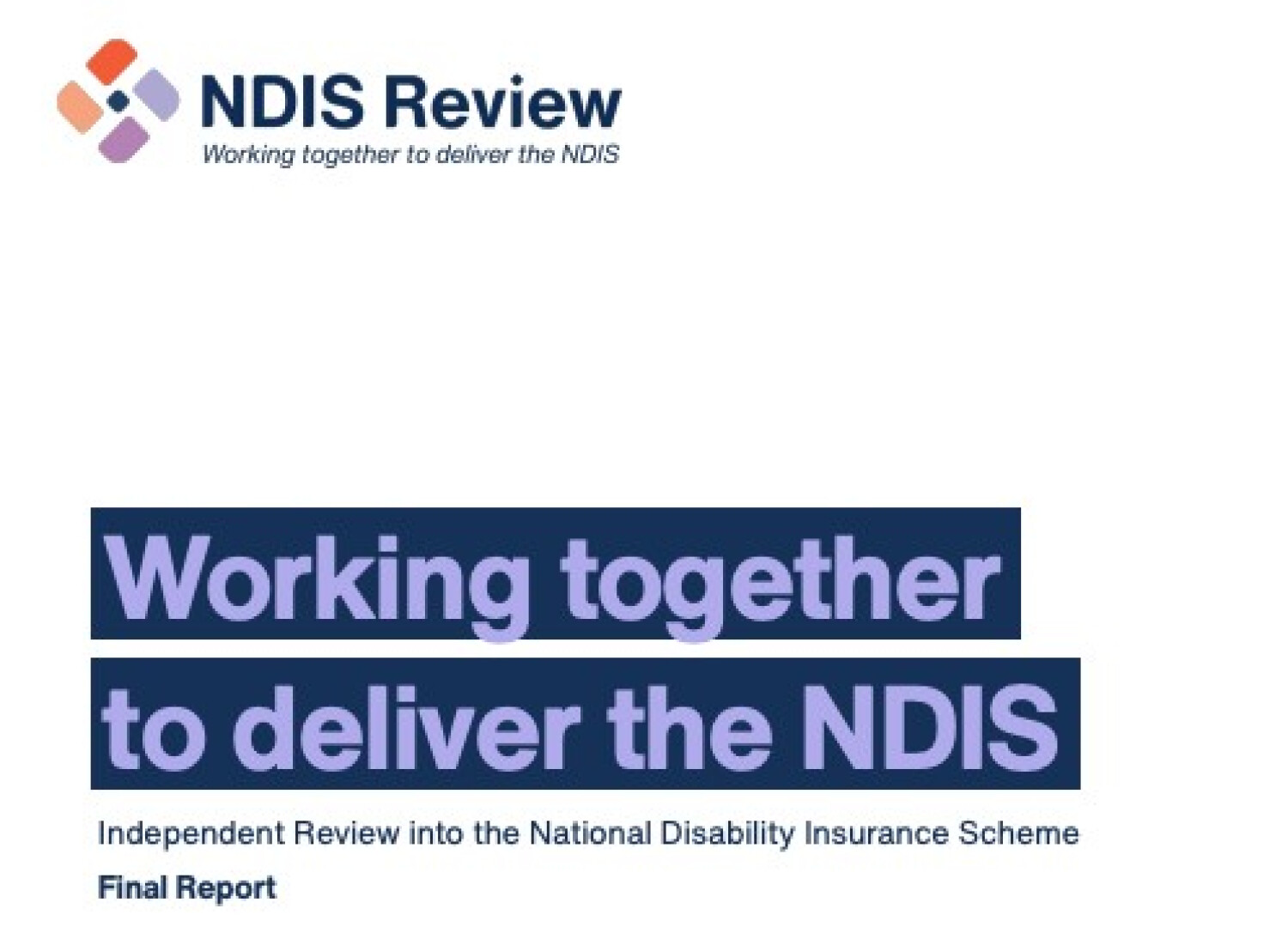NDIS Review - The Final Report Released: What you need to know

This article is from our trusted partners at Provider Institute.
Provider Institute, the Gold Standard in Provider Compliance, is an interactive compliance portal that helps you to discover, understand and implement the legislative and regulatory changes that directly impact your organisation, based on your region and service delivery. Transform your compliance processes with the future in compliance management solutions.
Discover more about our trusted partners.
All NDIS Providers, registered and unregistered, take note!
The highly anticipated Final Report, Working together to deliver the NDIS - NDIS Review was released on December 7, 2023. The Review was undertaken by a Panel, led by co-chairs Prof. Bruce Bonyhady AM and Ms Lisa Paul AO PSM.
The Final Report included 26 recommendations with 139 actions that aim to restore trust to participants as well as ensure the scheme’s sustainability. Creating balance and developing more services outside of the NDIS was also a large focus in the report so that people with disability are considered and supported through a network of accessible mainstream services, not just the NDIS.
Notably, this report urges the Ministers of Disability and all governments to consider the recommendations wholly (not choosing those recommendations and actions they do / don’t want to do).
Looking at the Details….What does the Final Report say?
The Review’s terms of reference gave the Panel three overarching objectives:
Putting people with disability back at the centre of the NDIS.
Restoring trust, confidence and pride in the NDIS.
Ensuring the sustainability of the NDIS for future generations.
The Panel sought feedback from people with disability and their families, carers, representative organisations, providers and workers and their representatives, receiving more than 3,850 submissions online – one of the most extensive for an independent review undertaken in Australian history.
The Panel was clear that the central focus was to hear the voices of people with disability.
Based on the objectives and listening to the feedback, the NDIS Review’s Final Report recommendations and actions were grouped into 4 parts:
Part 1: A unified system of support for people with disability
Part 2: Markets and support systems that empower people with disability
Part 3: Stewardship of the unified ecosystem
Part 4: A five year transition
The Honourable Bill Shorten, Minister for the NDIS speaks to ABC news about the NDIS review findings.
Some of the key highlights include:
Changes and Updates to Legislation
A multitude of legislative reforms were recommended with the hope of returning the scheme to its original premise and improving the NDIS experience for all participants.
This includes improving eligibility and access to the NDIS, developing a unified approach across all governments and agencies to support the rights and needs of people with disability, as well as provider operational requirements. For the following Parts:
Part 1: A unified system of support for people with disability – 31 changes
Part 2: Markets and support systems that empower people with disability – 16 changes
Part 3: Stewardship of the unified ecosystem – 8 changes
A full list of proposed legislative changes can be found here: https://www.ndisreview.gov.au/resources/reports/working-together-deliver-ndis/appendix/appendix-d-legislative-changes

Introduction of Foundational Supports
The NDIS Review recommended disability focused and specific supports to be available to all Australians with disability, whether they are eligible for the NDIS or not. Foundational supports would connect with mainstream services, including child care, schools and medical facilities.
Access to the Scheme
Recommendations within the Report explained the need for a new Access Request and Supporting Evidence Form and accompanying guidance, aimed to make the process of applying for access to the NDIS easier for participants.
The new form will be online and interactive, making it easier to understand what information is required and why. The form will give real-time guidance where additional evidence is required and any issues with information entered.
There will also be additional guidance for treating professionals on what evidence is required and why. Importantly, the assessment process is to focus on an individual’s support needs, not the diagnosis.
More Support for Early Childhood Intervention
The Review acknowledged that there is not enough support for children with disability and developmental concerns in their settings of home, school or child care and the community.
Earlier checks and screenings to pick up developmental concerns are recommended. This is in response to the much larger uptake of NDIS services for children than was originally predicted when the NDIS was introduced.
Support Coordination to change with the Introduction of ‘Navigators’
The Navigator (a separate agent from the NDIA and based on a tendering process) would act on behalf of the person with disability, at their direction.
The Navigator would assist NDIS participants and non participants to build capacity, meet their NDIS goals, and enable choice and inclusion. It has been proposed that the Navigator will be funded outside of participants’ budgets, to ensure they do not have to choose between the Navigator and their other supports. Specialist Navigators would be available with people with more complex supports.
Navigators should help all people with disability find and coordinate the support they need, regardless of their NDIS eligibility. This will include connecting people who aren’t NDIS eligible with mainstream services, community supports and foundational supports.
It is recommended that Navigators have realistic caseloads, being able to provide more intensive support if the needs of participants changes. Where possible, Navigators are to operate from ‘hubs’ with other relevant services so they can share information on supports.
The proposed staged approach to move to Navigators would provide the opportunity for existing Support Coordinators to transition under the provision of Navigator supports to allow for continuity of supports for participants.
Plan Management
The Report suggests introducing a digital payments system, aiming to eventually reduce the need for Plan Managers over time. By introducing this system, it will improve the digital infrastructure of the NDIS as well as make it easier for providers to be paid. The Report stressed that this change should not happen quickly, and would be staggered over time.
New Support for Psychosocial Disability and Mental Health
A dedicated approach to participants with psychosocial disability was recommended, with the focus being on recovery.
It was also recommended that the NDIS and mental health systems be improved and better connected.
Participants would be able to access a Navigator who has expertise in psychosocial supports, including being trauma-informed. Navigators should work with participants to understand what treatments and supports they may have tried in the past and should help to identify evidence-based supports to connect with mental health services, education, employment and supports.
Housing and Living Supports
Consistency concerning housing and living support budgets within NDIS plans was recommended, aiming to be fairer for participants. Housing supports are recommended to become more flexible to assist participants in their individualised situations.
It has been recommended that a new Practice Standard be introduced to separate tenancy and housing, allowing participants to try living situations before committing to them.
The Report suggests that participants should only be funded to live alone in specific circumstances such as risk of harm to self or others, participants with children, or if they have very complex needs. Participants requiring 24/7 living supports should be based on an average shared support ratio of 1:3.
It has been recommended to remove the Improved Liveability Specialist Disability Accommodation (SDA) design category, to create a new SDA category for people living in shared accommodation but who are not eligible for other categories.
Participants should be supported by an Independent Housing and Living Navigator to assist with defining their housing goals. The Navigator should have in depth knowledge of local housing and living options.
Provider Registration
The Review recommended that all providers who provide NDIS supports be registered to safeguard NDIS participants from abuse, neglect and fraud.
The Review proposes four categories of regulation for providers, based on risk. This new approach proposes that all providers must be registered or enrolled to work within the NDIS.
The implementation proposed includes:
Advanced Registration: support is considered high risk and requires high level of technical competence.
General Registration: medium risk supports, including High Intensity Daily Personal Activities and 1:1 contact with participants.
Basic Registration: for all lower risk supports, a lighter touch registration requirement and appears to be similar to current verification based around self-assessment.
Enrolment: an alternative to registration and would include a simple light touch process for providers of lowest risk supports (for example consumables, equipment, technology and home and vehicle modifications).
What’s Next?
The recommendations outlined above are important for all providers to understand as they directly relate to your NDIS participants and your business. Although we are still waiting for the Government to respond in 2024, it has been made clear that changes are coming and will impact provider registration and operations.
What does this mean for NDIS Providers?
Firstly, take a deep breath!
The changes proposed by the “Working together to deliver the NDIS” Final Report have not occurred yet and it will be some time before they do with a suggested 5-year transition plan. However, it is important that you are ready and informed of changes to the NDIS and disability supports in 2024.
How to prepare your business for future NDIS changes:
Have your participant case notes, files and NDIS plans up to date in your CRM so you can continue to focus on providing high quality supports to your participants
Ensure your business is audit prepared and ready to maintain your NDIS registration by completing internal audits and keeping on top of your compliance requirements
Keep up to date with news and information about when the Government’s response to the Final Report is published and when new changes are coming into effect.
For further information and reading about the NDIS Review Final Report referenced in this article, please visit:
Commonwealth of Australia, Department of the Prime Minister and Cabinet Working together to deliver the NDIS.
Working together to deliver the NDIS - NDIS Review
ABC News: Minister Bill Shorten breaks down NDIS Review to National Press Club
 au
au


